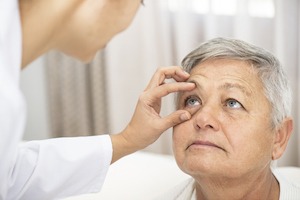Written by Olivia Cohen
According to the 2012 U.S. Census, there are over 12.4 million veterans aged 65 or older living in the country today who served in conflicts around the world, from World War II through the Persian Gulf War. Even heroes age though, and even the strongest need a helping hand. In honor of their brave service, many veterans are eligible for monetary assistance for in-home care as they age, lightening the financial hardship of aging in place.
The Aid and Attendance program is an additional monetary payment available to veterans who are eligible for or who are already receiving a VA Pension benefit. In addition to pension eligibility, veterans must meet one of the following conditions to qualify:
- They require help performing daily functions like bathing, eating, or dressing
- They are bedridden
- They are a patient in a nursing home
- Their eyesight is limited to a corrected 5/200 visual acuity or less in both eyes, or concentric contraction of the visual field to 5 degrees or less
These benefits are available to service members, their spouses, or a surviving spouse, and can pay up to $2,127 a month for a couple, $1,794 for a single veteran, and $1,153 for a single surviving spouse.
Through American In-Home Care, you or your the veteran you love can apply an Aid and Attendance benefit toward any regular services: companion care, personal care, live-in care, Alzheimer’s and dementia care, or skilled nurse care, each of which contributes toward keeping your loved one living comfortably in their home.
Companion Care
Companion care is geared for seniors with light care taking needs — just someone to provide companionship and help with daily tasks like meal preparation, errands, and transportation.
Personal Care
Personal care provides hands-on assistance with tasks like bathing, dressing, and eating.
Live-In Care
Live-In Care providers perform a full array of at-home services, including assistance getting in and out of bed, catheter care, and personal hygiene assistance.
Because Alzheimer’s and Dementia affect every individual differently, American-In Home Care can work with you to find an agent best suited to your loved one’s needs, from regular assistance to respite care, which provides a break for family members acting as care takers.
More serious health evaluations and ongoing care needs can be addressed by Registered Nurses (RNs) or Licensed Practical Nurses (LPNs), who can perform any reguarlyly offered service in addition to roles that necessitate more training, like regularly monitoring health conditions and helping with Infusion Therapy (IVs).
If you are or know of a veteran who could find it easier to live comfortably in their own home through any of these services, contact American In-Home Care to speak with an agent who is knowledge about the Aid and Attendance Program. An agent can help you determine if you qualify for the benefit, work with Veteran-Care to assist you throughout the entire application process, and refer a qualified home care agent best suited to your needs. American In-Home Care always refers qualified, screened, care providers that are compassionate and ready to help. Contact us at 1-844-505-0004 to schedule your free in-home consultation to discuss which care options are right for you and your family.






